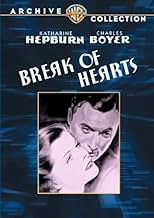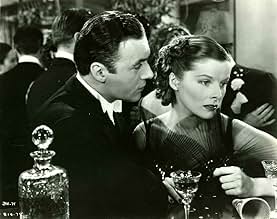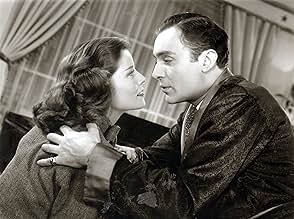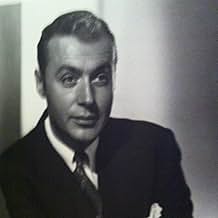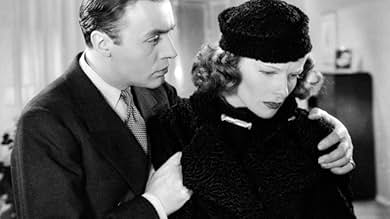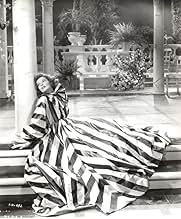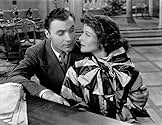Franz Roberti, orchestra conductor with multiple girlfriends, meets aspiring composer Constance through Professor Thalma. They marry, honeymoon across Europe, but Constance leaves after find... Read allFranz Roberti, orchestra conductor with multiple girlfriends, meets aspiring composer Constance through Professor Thalma. They marry, honeymoon across Europe, but Constance leaves after finding Franz with a divorcee.Franz Roberti, orchestra conductor with multiple girlfriends, meets aspiring composer Constance through Professor Thalma. They marry, honeymoon across Europe, but Constance leaves after finding Franz with a divorcee.
- Awards
- 4 wins total
- Albert Henderson
- (uncredited)
- Messenger
- (uncredited)
- Man in Hotel
- (uncredited)
- Max
- (uncredited)
- Radio Announcer
- (uncredited)
- Mr. Lubin
- (uncredited)
Featured reviews
This is all about Boyer and Hepburn. They have a bit of chemistry but I wouldn't call it heated. They are a bit too cerebral. They need a better meet-cute to start off the movie. The relationship is at medium simmer rather than maximum heat. The movie can't elevate that high even with the drama. Nothing is that in doubt. The hurdles aren't that high. It simmers but it never boils.
Overall, while the acting is pretty good and a nice looking production, the movie itself is very ordinary...at best. In fact, some parts are a bit embarrassing to watch--it just wasn't written all that well and seemed overdone and unreal--particularly in the second half. A sticky and clichéd soap opera and not a whole lot more. There just wasn't enough interesting material in this film to elevate it anything more than a time-passer. Too bad--with this talent, it should have been a lot better.
Lederer (born Frantisek or Franz Lederer in Prague) was a handsome leading man-type actor who developed into a matinee idol in European films just before his arrival in the US in 1932. Although darkly attractive and warmly regarded by the critics, American audiences seemed not to be positively responding to him. RKO's strategy in 1935 was to cast Hepburn and Lederer together in a film with the hope that this combination would prove to generate a hit for both of them. The project was to be named Break of Hearts (BOH) and would be directed by Philip Moeller of the Theatre Guild. Then RKO started to film the picture. Trouble began shortly thereafter.
It turned out that Lederer was a temperamental and insecure actor, who initiated a quarrel with Moeller because he felt that the director was tilting BOH more in favor of Hepburn's character. During the second week of filming, Lederer walked off the set, and did not return. A desperate RKO sought out Charles Boyer to fill the void based upon his recent success in the film Private Worlds----and fill it he did. Hepburn and Boyer became a congenial acting couple and BOH was smoothly finished without further complications.
However, BOH did not meet box office expectations. Critics felt that Moeller was a static film director, and Hepburn's role of a long suffering serious composer providing endless support for a hedonistic symphony conductor left much to be desired as entertainment. BOH reinforced Boyer's growing reputation in Hollywood as an appealing Continental lover-type character who also had depth and conviction as an actor. Unfortunately, BOH's tepid box office results continued to complicate Hepburn's marketability and reinforced the impression that she seemed to have problems selling herself as a commercially viable artist.
BOH contained fine acting performances from its two principals and had an intelligent (if somewhat overwrought) script. However, the Boyer character was hard to like, and Hepburn's commitment to him grew tiresome to the film's audiences. In the end, their fans were underwhelmed. Hepburn made a modest comeback in her next film (Alice Adams (1935)), but continued on a mercurial career trajectory that was a feature of her work in the 1930s. She could not then realize that her best years were still ahead of her.
Did you know
- TriviaAmong the many women whose photos adorn Franz Roberti's apartment is a very blonde Lucille Ball, who was an RKO Radio contract player at the time this film was made.
- Quotes
Franz Roberti: I feel better.
Constance Dane Roberti: Did you feel badly?
Franz Roberti: You don't have to feel bad to feel better.
- ConnectionsReferences L'étoile du Moulin Rouge (1934)
- SoundtracksSymphony No. 9 in E minor 'From the New World'
(1893) (uncredited)
Written by Antonín Dvorák
Excerpts played at a concert
Details
Box office
- Budget
- $427,000 (estimated)
- Runtime
- 1h 18m(78 min)
- Color
- Aspect ratio
- 1.37 : 1

